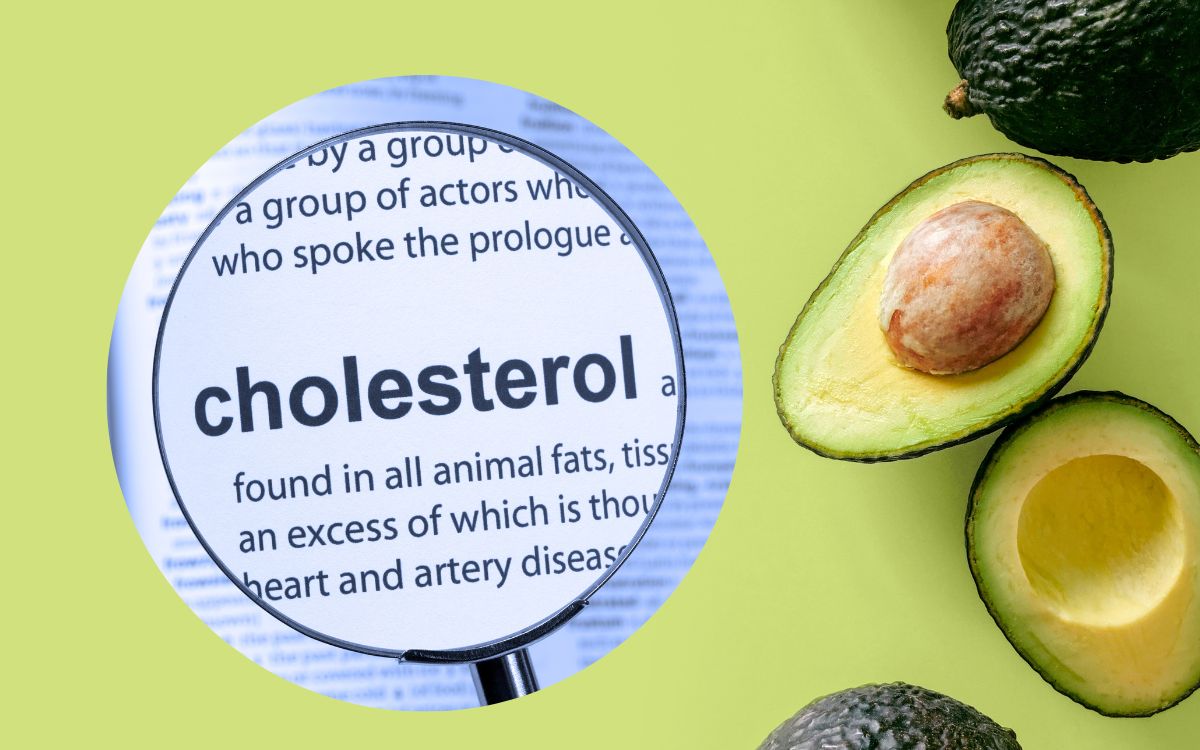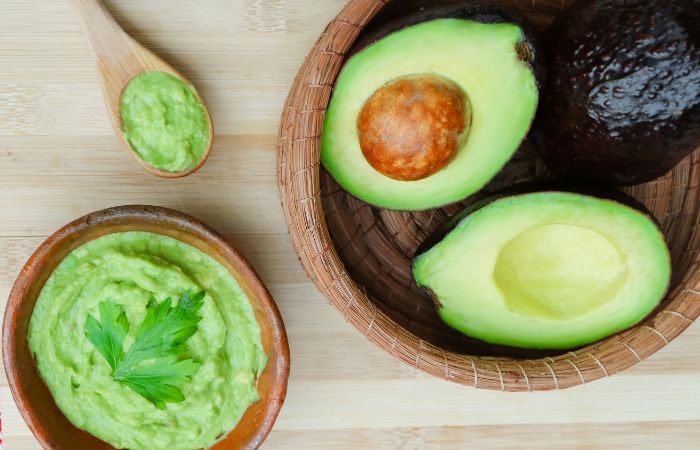In recent years, avocados have gained tremendous popularity due to their delicious taste and numerous health benefits. One of the most prominent claims surrounding avocados is their potential to help manage cholesterol levels.

However, amidst the hype, there is often confusion about the actual impact of avocados on cholesterol and whether they live up to the claims. In this blog post, we will separate myths from facts and provide you with a comprehensive understanding of how avocados can play a role in managing cholesterol.
Understanding Cholesterol and Its Impact on Health
Cholesterol is a waxy substance found in the cells of our body and is essential for various bodily functions. It plays a crucial role in building cell membranes, producing hormones, and aiding in the digestion of fats. However, having high levels of cholesterol, particularly low-density lipoprotein (LDL) cholesterol, can pose significant health risks.
The Role of Cholesterol in the Body
Cholesterol is produced naturally in our liver and is also derived from certain foods we consume. It is transported through the bloodstream in lipoproteins, which are a combination of fats and proteins. These lipoproteins can be categorized into two main types: LDL cholesterol and high-density lipoprotein (HDL) cholesterol.
Understanding LDL (Bad) Cholesterol
LDL cholesterol is often referred to as “bad” cholesterol because high levels of LDL can lead to the formation of plaque in the arteries. This buildup of plaque can restrict blood flow and increase the risk of cardiovascular diseases, such as heart attacks and strokes. It is important to manage and maintain LDL cholesterol within healthy limits.
The Importance of HDL (Good) Cholesterol
HDL cholesterol, often referred to as “good” cholesterol, plays a protective role in the body. It helps remove excess cholesterol from the bloodstream and carries it back to the liver for processing and elimination. Higher levels of HDL cholesterol are associated with a lower risk of heart disease.
Impact of High Cholesterol on Cardiovascular Health
When LDL cholesterol levels are elevated, the excess cholesterol can accumulate in the arterial walls, leading to a condition called atherosclerosis. This condition narrows and hardens the arteries, restricting blood flow and increasing the risk of cardiovascular events. Managing cholesterol levels is crucial in reducing the risk of heart disease and maintaining overall cardiovascular health.
Avocado: A Nutritional Powerhouse
Avocados have gained a reputation as a nutritional powerhouse due to their unique combination of beneficial nutrients. Packed with vitamins, minerals, and healthy fats, avocados offer a range of health benefits beyond their delicious taste. Let’s delve into the nutritional composition of avocados and understand why they are considered a valuable addition to a healthy diet.
Rich in Monounsaturated Fats: A Heart-Healthy Choice
Avocados are known for their high content of monounsaturated fats, which are considered healthy fats. These fats have been associated with various health benefits, including improved heart health. Monounsaturated fats can help reduce LDL cholesterol levels and lower the risk of heart disease when consumed in moderation.

Fiber Content and Its Importance in Managing Cholesterol Levels
Avocados are an excellent source of dietary fiber, which plays a vital role in maintaining a healthy digestive system and managing cholesterol levels. Fiber helps regulate cholesterol absorption in the intestines, thereby reducing LDL cholesterol levels. Additionally, fiber promotes a feeling of fullness, aiding in weight management and overall cardiovascular health.
Abundance of Essential Vitamins and Minerals
Avocados are packed with an array of essential vitamins and minerals that contribute to overall well-being. They are a good source of vitamins C, E, K, and B-6, as well as folate and potassium. These nutrients support various bodily functions, including immune system function, energy production, and healthy blood pressure levels.
Antioxidant Properties and Phytonutrients
Avocados contain antioxidants and phytonutrients that play a crucial role in reducing oxidative stress and inflammation in the body. These compounds help protect against chronic diseases, including heart disease. One notable antioxidant found in avocados is glutathione, which is known for its potent antioxidant properties.
Low in Sugar and Cholesterol-Free
Avocados are naturally low in sugar, making them a suitable choice for individuals looking to manage their blood sugar levels. Moreover, avocados are completely cholesterol-free, which is advantageous for those aiming to lower their overall cholesterol intake.
The Facts Behind Avocado and Cholesterol
There has been significant research conducted to determine the impact of avocados on cholesterol levels, and the findings are promising. Let’s delve into the scientific evidence to understand the facts behind avocados and their effect on cholesterol.
Research Studies on the Impact of Avocados on Cholesterol Levels
Numerous studies have investigated the relationship between avocado consumption and cholesterol management. These studies have consistently demonstrated that incorporating avocados into the diet can lead to favorable changes in cholesterol profiles.
Avocado’s Effect on LDL Cholesterol: Examining the Evidence
Research suggests that avocados can help reduce LDL cholesterol levels. A study published in the Journal of Clinical Lipidology showed that consuming one avocado per day resulted in a significant decrease in LDL cholesterol levels compared to a control group. The monounsaturated fats in avocados are believed to contribute to this positive effect on LDL cholesterol.
Avocado’s Role in Increasing HDL Cholesterol and Reducing Triglycerides
Avocado consumption has also been associated with an increase in high-density lipoprotein (HDL) cholesterol levels, often referred to as “good” cholesterol. HDL cholesterol helps remove LDL cholesterol from the arteries, promoting heart health. Additionally, studies have indicated that avocados can help lower triglyceride levels, which are another type of fat found in the bloodstream that can contribute to heart disease risk.
Nutrients in Avocado Contributing to Cholesterol Benefits
The combination of monounsaturated fats, fiber, and various other nutrients found in avocados is believed to contribute to their cholesterol-lowering effects. The high monounsaturated fat content can help reduce LDL cholesterol, while the fiber content aids in cholesterol regulation. Avocados also contain plant sterols, which are compounds that have been shown to inhibit cholesterol absorption in the intestines.
Debunking Common Myths
Avocado consumption has become a subject of various myths and misconceptions when it comes to managing cholesterol. Let’s separate fact from fiction and debunk some of the common myths associated with avocados and cholesterol.
Myth 1: Avocado Raises Cholesterol Levels
One prevalent myth suggests that the high fat content in avocados can lead to an increase in cholesterol levels. However, research indicates that the monounsaturated fats present in avocados can actually help lower LDL cholesterol while increasing HDL cholesterol levels. It’s important to remember that the overall dietary pattern and lifestyle choices play a significant role in cholesterol management.
Myth 2: Avocado Should Be Avoided Due to Its Fat Content
Avocados do contain fat, but it’s important to recognize that not all fats are created equal. The majority of the fat in avocados is monounsaturated fat, which is considered heart-healthy. These fats can actually help improve cholesterol levels and reduce the risk of heart disease when consumed in moderation as part of a balanced diet.
Myth 3: Avocado Can Replace Cholesterol-Lowering Medications
While avocados can contribute to a heart-healthy diet, it’s crucial to understand that they cannot replace prescribed cholesterol-lowering medications. Avocados should be seen as a dietary addition that complements a holistic approach to managing cholesterol. It’s important to consult with healthcare professionals and follow their guidance regarding medication and dietary recommendations.
The Importance of a Balanced Diet and Lifestyle
When it comes to managing cholesterol effectively, avocados can be a valuable addition to your diet. However, it’s crucial to understand that avocados alone cannot guarantee optimal cholesterol levels. A balanced diet and a healthy lifestyle play a pivotal role in maintaining overall cardiovascular health. Let’s explore the importance of a balanced diet and lifestyle in cholesterol management.

Avocado as Part of a Heart-Healthy Eating Plan
Incorporating avocados into a well-rounded, heart-healthy eating plan can contribute to cholesterol management. Combine avocados with other nutrient-dense foods, such as fruits, vegetables, whole grains, lean proteins, and healthy fats. Strive for a diverse range of nutrients and focus on portion control to maintain a healthy balance.
Incorporating Other Cholesterol-Lowering Foods into the Diet
Avocados are not the only food that can help manage cholesterol levels. There are several other cholesterol-lowering foods that can be included in your diet. These include foods rich in soluble fiber like oats, barley, legumes, and fruits such as apples and citrus. Nuts, fatty fish, olive oil, and plant sterols are also beneficial for cholesterol management.
The Significance of Regular Physical Activity
Regular physical activity is vital for maintaining overall cardiovascular health. Engaging in aerobic exercises like walking, jogging, swimming, or cycling can help increase HDL cholesterol (the “good” cholesterol) while promoting weight management. Aim for at least 150 minutes of moderate-intensity exercise per week, as recommended by health authorities.
Maintaining a Healthy Weight
Being overweight or obese can contribute to elevated cholesterol levels and increase the risk of heart disease. Alongside a balanced diet and physical activity, maintaining a healthy weight is essential for cholesterol management. Focus on portion control, mindful eating, and adopting sustainable lifestyle habits to achieve and maintain a healthy weight.
Tips for Incorporating Avocado into Your Diet
Avocados are not only nutritious but also versatile and delicious. If you’re looking to include more avocados in your diet for cholesterol management, here are some tips and ideas to help you incorporate them into your meals and snacks.
Healthy and Delicious Ways to Enjoy Avocados
There are numerous ways to savor the creamy goodness of avocados. Enjoy them sliced or mashed on whole grain toast for a satisfying and nutritious breakfast or snack. Add diced avocados to salads, wraps, or sandwiches for an extra burst of flavor and texture. You can also use avocados as a base for homemade salad dressings, dips, or spreads.
Avocado as a Substitute for Unhealthy Fats in Recipes
Avocados can be a nutritious substitute for less healthy fats in recipes. Replace butter or mayonnaise with mashed avocado in baking recipes to add moisture and healthy fats while reducing saturated fat content. Use avocado slices instead of cheese or fatty sauces in sandwiches or burgers. The creamy texture of avocados makes them an excellent alternative in various dishes.
Adding Avocados to Salads, Smoothies, and Snacks
Boost the nutritional value of your salads by adding avocado slices or cubes. The creamy texture and mild flavor complement a variety of salad ingredients. Blend avocados into smoothies for a creamy texture and to increase healthy fat content. For a quick and healthy snack, enjoy avocado slices with a sprinkle of sea salt or as a dip for vegetable sticks.
Portion Control: The Right Amount of Avocado for Cholesterol Management
While avocados are nutritious, they are also calorie-dense. It’s important to practice portion control to avoid excessive calorie intake. A serving size of avocado is typically one-third to one-half of a medium-sized avocado. Moderation is key to ensure a balanced intake of nutrients while managing calorie consumption.
Conclusion
In conclusion, avocados can indeed be a valuable addition to a heart-healthy diet when it comes to managing cholesterol levels. Their unique combination of healthy fats, fiber, and various beneficial nutrients makes them a great choice for those seeking to improve their cholesterol profile.
Avocados have been shown to increase levels of HDL (good) cholesterol while reducing LDL (bad) cholesterol and triglycerides. However, it’s important to remember that overall dietary patterns and lifestyle choices are crucial factors in maintaining optimal cholesterol levels.








